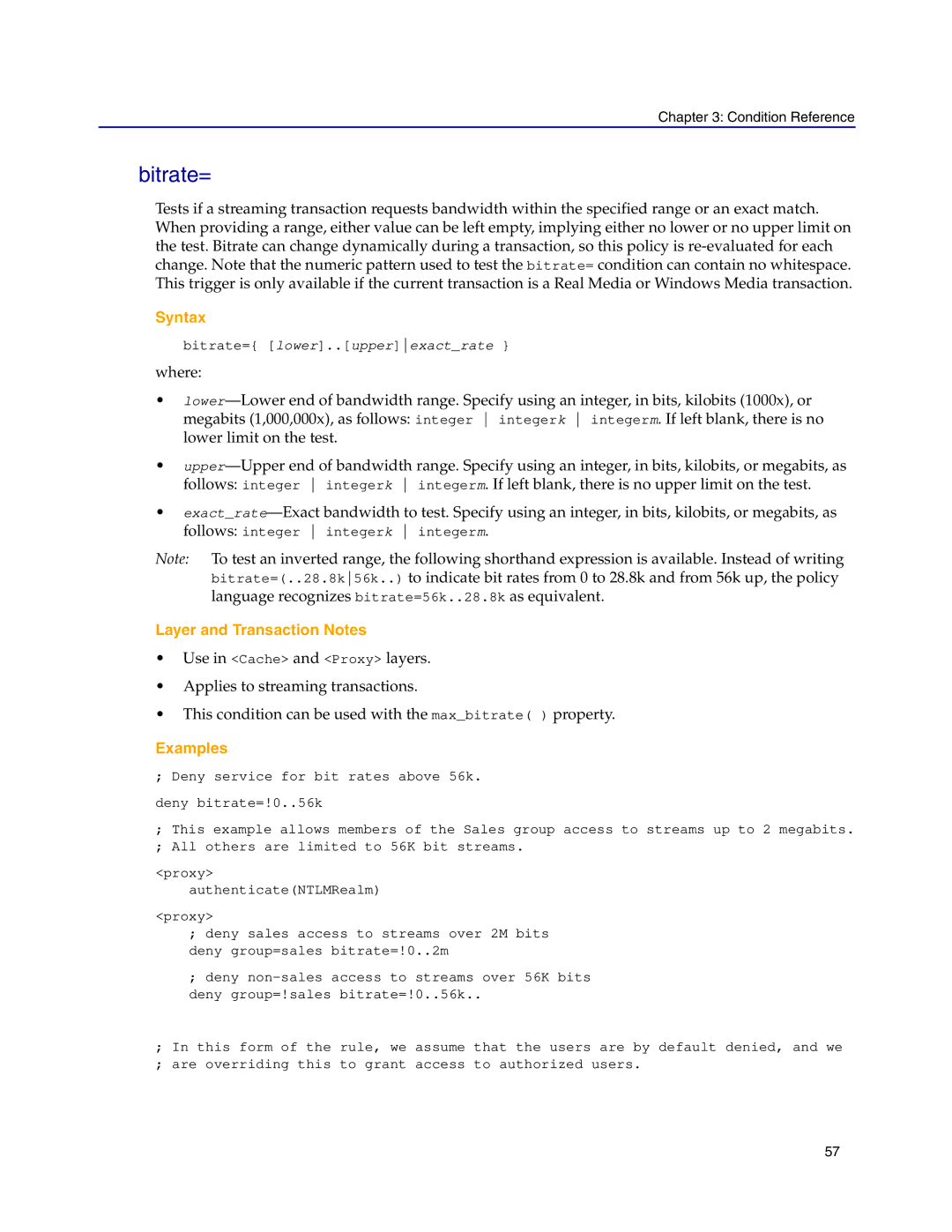Chapter 3: Condition Reference
bitrate=
Tests if a streaming transaction requests bandwidth within the specified range or an exact match. When providing a range, either value can be left empty, implying either no lower or no upper limit on the test. Bitrate can change dynamically during a transaction, so this policy is
Syntax
bitrate={ [lower]..[upper]exact_rate }
where:
•
•
•
Note: To test an inverted range, the following shorthand expression is available. Instead of writing bitrate=(..28.8k56k..) to indicate bit rates from 0 to 28.8k and from 56k up, the policy language recognizes bitrate=56k..28.8k as equivalent.
Layer and Transaction Notes
•Use in <Cache> and <Proxy> layers.
•Applies to streaming transactions.
•This condition can be used with the max_bitrate( ) property.
Examples
;Deny service for bit rates above 56k. deny bitrate=!0..56k
;This example allows members of the Sales group access to streams up to 2 megabits.
;All others are limited to 56K bit streams.
<proxy>
authenticate(NTLMRealm)
<proxy>
;deny sales access to streams over 2M bits deny group=sales bitrate=!0..2m
;deny
;In this form of the rule, we assume that the users are by default denied, and we
;are overriding this to grant access to authorized users.
57
